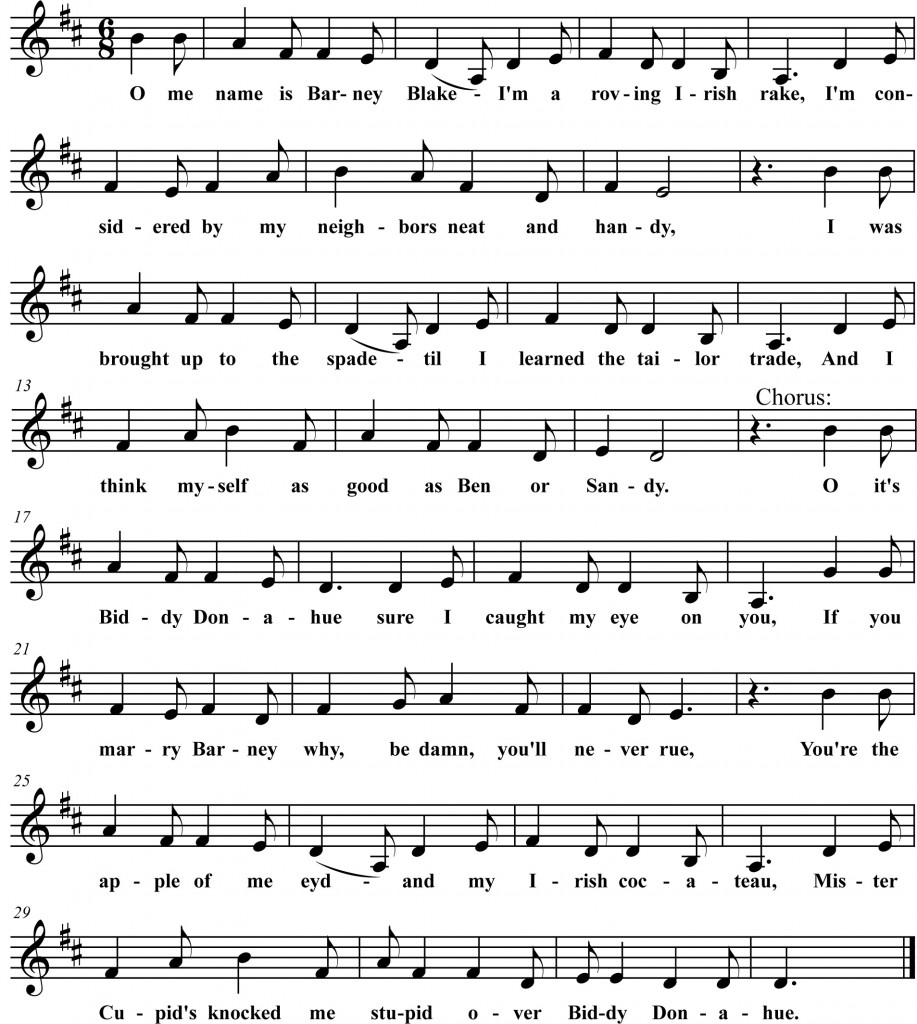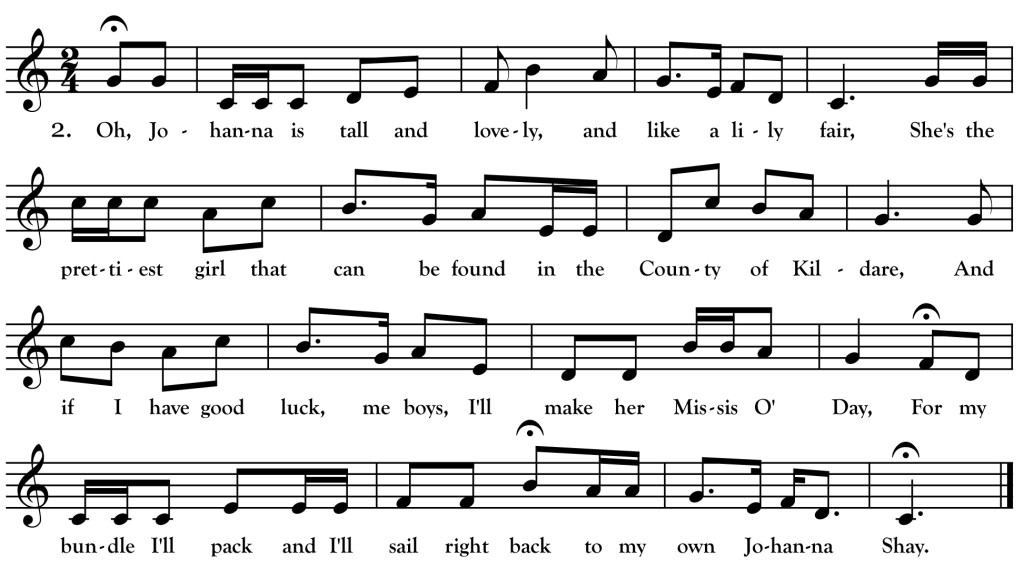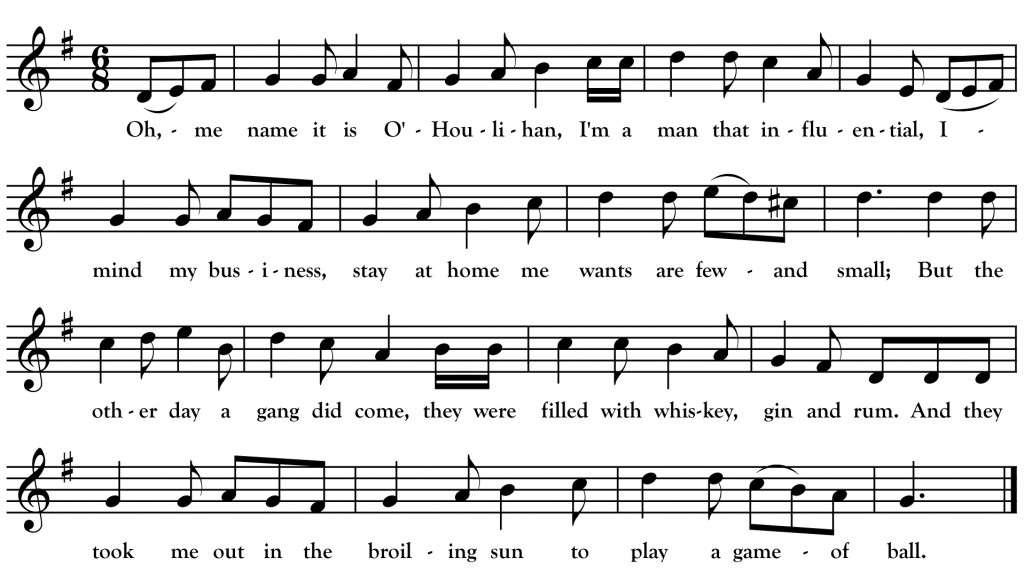Barney Blake
[as usual, I mis-remembered a few bits of the melody in this recording… I’d redo it, but the location was too good!]
O me name is Barney Blake, I’m a roving Irish rake
I’m considered by my neighbors good and handy
I was brought up to the spade til I learned the tailor trade
And I think myself as good as Ben or Sandy.
Chorus
O it’s Biddy Donahue sure I caught my eye on you
If you marry Barney why be damn you’ll never rue
You’re the apple of me eye and my Irish cocateau
Mr. Cupid’s knocked me stupid over Biddy Donahue
It’s at a wedding of Pat Malare, sure I first met Biddy there
As I sat beside her at the wedding supper
How I felt I couldn’t say when she handed me the tay
For my heart it melted like a lump of butter.
Now she’s handsome and she’s mild she’s a dacent father’s child
She’s the pride of all around our Irish nation
You would go from here to Spain to hear her sing Napolean’s Dream
And for dancing, boys, she has a lovely carriage.
Now some folks they do try, for to poke out Barney’s eye
But in this I’m sure they all will find a failure
She would not see me fooled, she’s as good as guinea gold
And she’ll marry none [hold on “none”] but Barney Blake the sailor.
_________
This is another song I transcribed from a reel-to-reel recording made in Beaver Island, Michigan while I was at the American Folklife Center in Washington, DC this summer. Singer Dominick Gallagher (1867-1954) sang this for collector Ivan Walton in 1940.
A wonderful aspect of field recordings can be the chat caught on tape before and after songs. Walton made a point of asking Gallagher where he got each song and when he asked him about “Barney Blake,” Gallagher replied:
Gallagher: “I learned that in the lumber woods about 45 or 50 years ago from a Canadian Scotsman.
Walton: “What lumber woods was that?”
Gallagher: “Up in Grand Marais [pronounced Marase] on Lake Superior shores.”
The song itself seems to have its origins in the Irish music halls of the 1870s where I have found evidence of it being performed by (and perhaps written by) a song and dance duo by the names of Devlin and Tracy that were active in Boston and New York in that era. It was very common for singers to pick up Irish music hall songs and sing them unaccompanied in lumber camps. In fact, another version of Barney Blake was collected from Ottawa Valley singer O.J. Abbott.
+++++++++++++++++++++++++++++++++++++++++++++++++++++++
CORRECTIONS FROM PRINT VERSION: I made a couple mistakes in the version published in the IMDA October newsletter and they are correct above. Here’s what I got wrong the first time around:
First, I misidentified the singer as John W. Green instead of Gallagher who actually sang the song for Walton.
Also, I was a bit over-eager to claim a Grand Marais, Minnesota connection for this song based on this mention of “Grand Marais on Lake Superior shores.” After I sent in my column to be published in the IMDA October newsletter, a friend reminded me that there is another Grand Marais on the southeastern shore of Lake Superior in Michigan’s Upper Peninsula. It is much more likely that Gallagher did his logging in the locality of the Michigan Grand Marais, not on Minnesota’s north shore.



